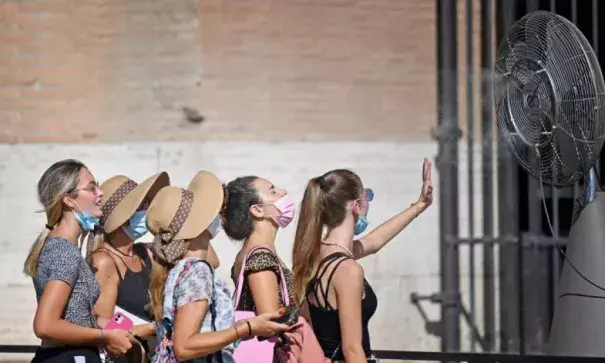Heat waves, wildfires & drought: How this summer is a 'preview' of Earth's coming climate crisis

Climate Signals summary: The extreme weather and climate impacts this summer are clear signals of climate change. As stated in the recently released Sixth Assessment Report of the Intergovernmental Panel on Climate Change, the "impacts of climate change are now widespread and severe", from heatwaves, drought and wildfires to heavy downpours and coastal flooding.[1] What's more, recent climate extremes are breaking long-standing records by large margins.
Article excerpt:
In a summer already full of extreme weather, it's the heat waves roasting hundreds of millions of people across three continents that are confirming a grim climate prophecy for many experts.
Sizzling temperatures in the United States and Canada and persistent heat in parts of Europe and northern Africa are creating dangerous health conditions, aggravating droughts and fueling wildfires around the world. And it's this troubling confluence of climate threats that researchers have been warning about for two decades.
"Climate scientists were predicting exactly these kinds of things, that there would be an enhanced threat of these types of extreme events brought on by increased warming," said Jonathan Martin, a professor of atmospheric science at the University of Wisconsin-Madison. "It's very distressing. These are not encouraging signs for our immediate future."
...
Heat waves occur naturally in the summer, but climate change is exacerbating these events because emissions of heat-trapping greenhouse gases are causing average temperatures to increase. These changes to baseline temperatures mean that when heat waves do occur, they are more likely to be severe, said Gerald Meehl, a senior scientist at the National Center for Atmospheric Research in Colorado.
"If average temperatures are increasing everywhere, that increases the odds of more intense heat events," he said. "Even relatively small increases in average temperatures cause a much bigger shift in the extremes."
Extreme weather events, including heat waves, are driven by a complex mix of atmospheric processes and can vary from year to year, but climate change helps amplify the threats, said Philip Mote, a climate scientist at Oregon State University.
...
Yet even while climate scientists have spent the past few decades projecting the effects of global warming, Mote said the intensity and pace of changes to the planet have been surprising.
"I've been involved with climate research for 23 years, and I honestly didn't think it would get this bad this fast," he said. "This isn't really news to anyone who have been studying this for a while, but it's depressing to see it coming true."


